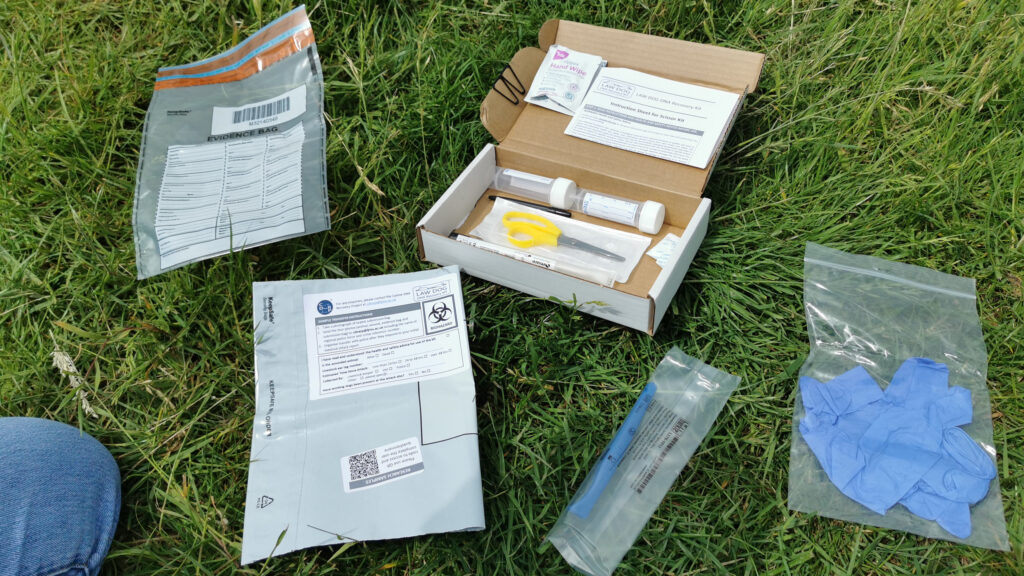Farmers trialling DNA test kits for attacked livestock
 © MAG/Philip Case
© MAG/Philip Case A forensic research project is working with farmers, vets, police and industry to improve the collection of dog DNA following attacks on livestock.
The Canine DNA Recovery Project (CDnaRP) is trialling early evidence kits for use in the event of an attack, which allows a forensic sample to be collected from the crime scene by police, vets and farmers.
The kits enable canine DNA to be collected from dogs suspected of attacking livestock in minutes at the scene of the attack, with samples sent to laboratories for analysis.
See also: What to do if you’re a victim of… sheep worrying
Farm animals worth an estimated £2.4m were severely injured and killed in dog attacks last year – a rise of almost 30% year-on-year – according to rural insurer NFU Mutual.
Dr Nick Dawnay, a forensic scientist with 20 years of experience in the field, is leading the project at Liverpool John Moores University.

Nick Dawnay © MAG/Philip Case
Dorset farm event
He presented the concept behind the kits to farmers at a livestock worrying information event organised by the NFU and Synergy Farm Health at Bhompston Farm, Dorchester, on Friday (24 May).
The project started about two years ago in the North West with rural crime teams from North Wales Police, Dyfed-Powys Police and Gwent Police.
It now involves rural crime teams in a total of 10 police forces.
The kits are being distributed this summer in 10 regions across England and Wales through participating police forces, NFU Mutual, the National Sheep Association (NSA), and the Farmers’ Union Wales.
“The kits are distributed to rural crime teams, vets and to livestock keepers so that regardless of who is on the scene, someone can collect an evidential sample,” said Dr Dawnay.
Three types of kits are being trialled – scissor kits, swabbing kits and mini tape kits – to develop best practice.
The kits are presently being used for research purposes only and any material that is collected does not get sent to case work.
Researchers need to demonstrate that the kits are reliable and that there is a market for them before they can be validated and introduced commercially, possibly within the next three-to-four years.
Additional police powers
Sgt Dave Allen, from North Wales Police, said: “New legislation for England and Wales is making its way through parliament and gives police officers the power to take a DNA sample from a suspected dog to compare to canine DNA left at an attack scene.
“These kits are an exciting development and can be utilised for an issue that causes major concern to our UK rural communities.”
Anyone interested in funding the research should email Dr Dawnay at n.m.dawnay@ljmu.ac.uk.
